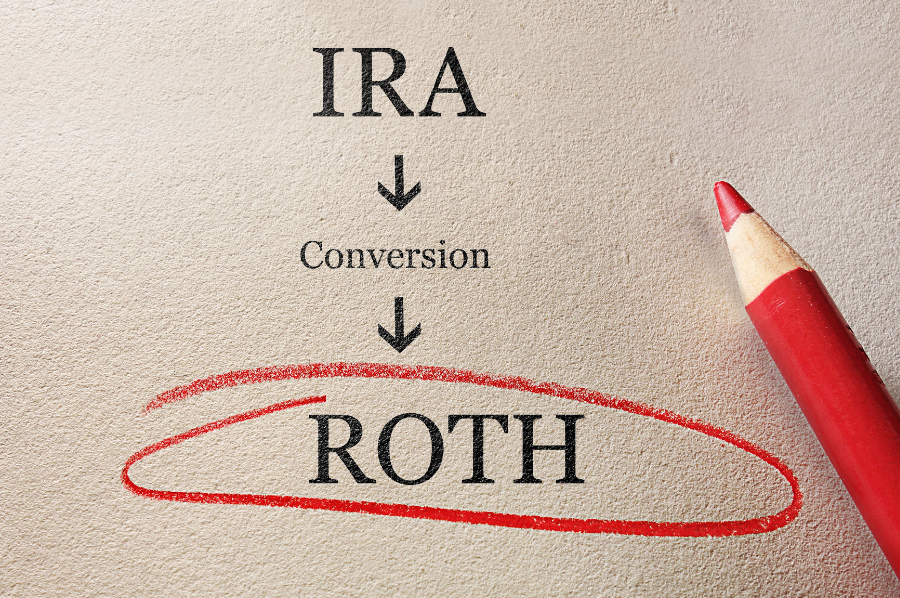


February 03, 2022
If you're like most people, you'll likely be employed at more than one place throughout the duration of your career. It's normal to keep moving onwards and upwards to meet your ever expanding goals. So, when that day comes and you've secured your next career move, it's expected that there will be a lot on your mind, and your retirement plans won't necessarily be at the forefront of those thoughts.
After all, there are a lot of different routes you could take when it comes to your old 401(k) and that can be overwhelming, especially if you don't know where to start. Let's begin by outlining some of your options so you can begin to decide which path is right for you.
| Option | Explanation |
|---|---|
| Cash out | Withdraw the funds from your 401(k) account and receive the money directly. However, this option may result in taxes and penalties, and is generally not recommended as it can significantly reduce your retirement savings. |
| Roll over to IRA | Transfer your 401(k) funds into an Individual Retirement Account (IRA) with a financial institution of your choice. This option allows you to maintain the tax-deferred status of your retirement savings and potentially have more investment options. |
| Transfer to new employer's 401(k) plan | If you start a new job with a company that offers a 401(k) plan, you may have the option to transfer your old 401(k) funds into your new employer's plan. This can help you consolidate your retirement savings in one account and continue to benefit from tax-deferred growth. |
| Stay with your old employer's existing plan | Some employers allow former employees to keep their 401(k) funds in the old plan even after leaving the company. This option may be suitable if you are satisfied with the investment options and fees of your old employer's plan. However, you won't be able to make new contributions to the plan. |
| Convert to a Roth IRA | If you want to convert your 401(k) funds to a Roth IRA, you will need to pay taxes on the amount converted. Once the funds are in a Roth IRA, they can grow tax-free and qualified withdrawals in retirement are tax-free as well. This option may be suitable if you expect to be in a higher tax bracket in retirement and want to potentially reduce your tax liability. |
This option will depend on whether or not your former employer allows this. If they do, this is an option to explore as you are leaving. Be sure to note the amount that is currently in your account. If your balance is over $5,000 you will be able to keep it where it is. If your balance is under that threshold, your past employer may push you into a few scenarios such as:
This option can seem like a good course of action, especially when you're actively making the transition to another employer. But it should be noted though that there are some things that you could consider while making this choice.
Once you're settled at your new place of employment, you may elect to move your existing 401(k) to a plan with your new employer. This is a good choice to make, especially if the new plan has wider investment options or the fees are lower.
Before you can enroll in a new employer's 401(k), you'll likely have to wait a certain length of time. When you are able to enroll, it is relatively simple to roll over your old 401(k) balance. There are two avenues you can take when making the transfer:
If you're looking for a broader range of investment opportunities, switching from a 401(k) to an IRA may be something worth looking into. This is also a valuable option in the event your next employer doesn't offer any retirement benefits. This account is not employer sponsored, so you will have to open the account on your own.
The freedom to invest how you want could help you yield the results you're looking for when it comes to your retirement plan. It's possible that rolling over to an IRA could potentially save you money in areas like administrative fees and management since these costs tend to eat into your investment returns.
Not all IRAs are created equal, however. And each option can impact your taxes differently. If you decide to do a traditional IRA rollover, meaning you roll over your old 401(k) to a traditional IRA, any new earnings will accumulate tax deferred, and no taxes will be due when you move the money from one account to the other. If you choose to make withdrawals, however, you will have to pay taxes on said withdrawals.
Another path is a Roth conversion (converting your old 401(k) to a Roth IRA). A Roth IRA is similar to a traditional IRA, except that you will have to pay taxes on the money you're converting from your 401(k).
The reasoning behind this is because unlike traditional IRA accounts, which are funded by pre-tax dollars, Roth accounts are funded by your after-tax dollars. However, once the conversion is made, and the account has been open for at least five years, you are able to withdraw any earnings tax-free—provided that you are at least 59 ½ years of age.
If you no longer wish to invest your money, cashing out is an option that is available to you. If you're looking for the cash option, be aware that this comes with a few steps that could cost you in the long run. First and foremost, taking your money out of any investment vehicle can have an impact on your retirement savings, especially if you have goals in mind.
In addition, when you cash out your 401(k) you will be taxed on the entire amount at the local, state, and federal levels. This option may ultimately not be beneficial to you, especially if you already have a large sum of money in your account. The tax burden alone could be a detriment. Additionally, if you are under the age of 59 ½, be aware that you will have to pay a 10% early withdrawal penalty along with the taxes.
You May Also Like:
Written By: Heritage Financial Planning Team

With higher education costs increasing, especially for private institutions, it’s always important to start saving for college. The 529 college saving plan is a financial option you might have heard...
Read More
Saving for your financial future is one of the most important responsibilities that you have. To ensure that you are able to reach your long-term financial goals, there are several tax-advantaged...
Read More
Managing your personal finances is very important. For those that budget, save, and invest strategically, there will eventually come a time when they want to start taking withdrawals from their...
Read More
10440 N Central Expressway
Suite 1540
Dallas, TX 75231
214-446-2100
Site Links